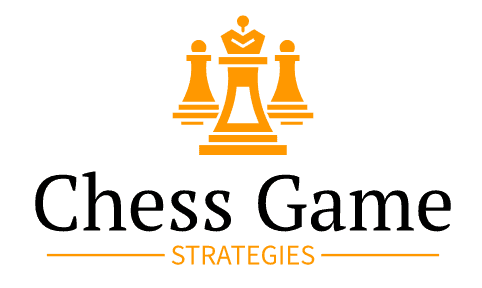
Chess Glossary : Section A
Absolute Fork
A specific type of Fork (Chess Tactic) where a Pawn or Piece attacks two enemy pieces, from a single square, but one of the attacked Pieces IS the enemy King.
Absolute Pin
A specific type of Pin (Chess Tactic) that attacks a less-valuable enemy Pawn or Piece, which cannot move, as it’s protecting its King who is sitting directly behind.
Absolute Skewer
A specific type of Skewer (Chess Tactic) that attacks the enemy King, which sits in front of, thus protecting, a Piece or Pawn (the actual target). The King will usually be forced to stand aside, to get out of check, but will lose the Piece or Pawn at the rear.
Active
1. Referring to the playing style of an opponent, who shows an eagerness for tactical or aggressive play.
2. More basically, a piece is often described as Active when it serves an active role, such as being advanced to a square where it could, subsequently, threaten the enemy’s position.
Active Bishop
A Bishop is described as being “Active” when it serves some sort of Active function – such as patrolling key squares of your opponent’s territory. An Active Bishop can be a Good Bishop or a Bad Bishop; yet both situations can be equally productive.
Adjacent File
One of the files to the immediate left or right of the file you’re looking at. As in “Black’s two Pawns sitting on adjacent files“.
Advanced Chain
An Advanced Chain refers to any Pawn Chain where the lead Pawn sits on its 5th Rank (thus, advanced into enemy territory).
Advanced Pawn
Any Pawn which makes it to its 5th Rank (thus into enemy territory), or beyond, is Advanced.
Advanced Salient
When the Salient has collectively advanced so that the middle Pawn is now standing on it’s 5th Rank, in enemy territory – it’s a Salient in an Advanced position.
Advantage
Whoever has a greater pawn structure, more material, better positioning of pieces on the board, more space for pieces to roam, or has more time remaining on their clock, is said to have the Advantage during a game.
Adjournment
1. When a game of chess is suspended/postponed, but with a view to continue it again at a later time or date, it is said to have been Adjourned.
2. The Chess Glossary Team said they’d have a go at adjourning their work, but management said they’d have a go at adjourning their pay … so, work (grudgingly) continued.
Adjudication
When a strong chess player uses their expert chess knowledge to decide upon the result of a game that hasn’t finished yet – they Adjudicate the outcome/result. This practice happens mostly in online games of chess, but is hardly ever seen in over-the-board (OTB) chess games.
Adjust
Applies only to over-the-board games of Chess, where pawns and pieces can sometimes get nudged over the boundary of the square they’re currently sitting on. A player who notices this can call out “I Adjust“, or “J’adoube“, to declare that they’re just repositioning the piece, but it’s not their actual move.
Advanced Pawn
A Pawn that’s made it into the enemy’s territory (the opposing side’s half of the Chessboard). Any of White’s Pawns that reach the 5th Rank and on up to the 7th Rank would be deemed an Advanced Pawn; for Black, the Pawns must reach the 4th Rank and down to the 2nd Rank.
Alekhine’s Gun
This refers to a specific type of Battery Attack formation (a Chess Tactic). Alekhine’s Gun involves the Queen and 2x Rooks, stacked together on a single File. The Queen is at the base of the formation, with the two Rooks in front, pointing at the enemy, like a big gun.
Algebraic Notation
Algebra is mathematical play with Letters and Numbers; Notation refers to the recorded moves during a game of Chess … Put the two together and you have a neat system for following Chess matches/tournaments – be it during a live match, or historical games of significance.
Amateur
Usually a term to distinguish between Professionals – whose sport/activity is their main ‘job’ (what they do to earn a living) and those who take part but don’t earn money as their sole means of income – this latter group are the Amateurs.
Amber
As the underpaid, over-worked Chess Glossary Team understands it, Amber isn’t some attention-seeking woman running a chess club, but a rather prestigious Chess Tournament.
Analysis
The Post-mortem of a game of Chess, more significant for the loser to perform, in order to find out where s/he went wrong and what move(s) could have directed them towards victory. But also done by the winner, in order to reinforce what went well, so they can maybe take it into their next game.
Annotation
According to the Chess Glossary Team, ’tis a poncy way for saying ‘Notation’ and refers to the system for recording moves during a game of Chess.
Announced Mate
A player who Announces Mate declares – or, announces – a sequences of moves that is believed to lead to a “forced checkmate”. This practice was common throughout the 19th Century.
Antipositional
A term used to describe a plan or sequence of moves that goes against the principles of Positional Play. The plan is what’s at fault, rather than a player making a blunder when following a good plan. Antipositional Play creates weaknesses in your position.
Anti-Sicilian
An Opening sequence. Follows on from the Sicilian Defence sequence (1. e4 … c5). The sequence known as the Anti-Sicilian begins with White’s 2nd move: 2. Nf3 being the most common move, but other variations exist.
Arbiter
An official who takes care of specific duties at chess tournament is known as the Arbiter. Duties include settling disputes and, when players are under time pressure, they’ll be involved with keeping score. For international tournament, the person is known as an International Arbiter.
Armageddon
This refers to a specific game situation where Black only requires a draw to win the game, but White needs to win, in order to win the game. In Armageddon games, White does get the benefit of more time (6 minutes versus Black’s 5 minutes). When shorter Blitz games havn’t resolved the playoff tie-breaker (to decide the overall match winner), Armageddon games will typically be played to decide matters.
Artificial Castling
Also known as “Castling by hand“, this is when a player takes multiple turns to manually move his King and Rook, until they end up in the exact positions, as if they had Castled.
Attack
1. When a player goes on the offensive with one of his pieces.
2. Preoccupation of the Chess Glossary Team’s sadistic Pit Bull Terrier.
Attraction
1. Bone-idleness is the Chess Glossary Team’s biggest attraction.
2. Refers to an attempt to Attract the enemy King into an exposed position, by using one of the Pieces (Knight, Bishop, Rook, or Queen) as sacrificial bait – the selected Piece may be captured by the King, but by doing so, the King will walk into an exposed position, ready for you to attack.

